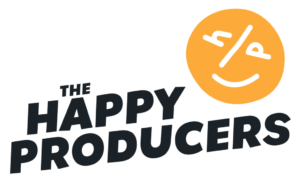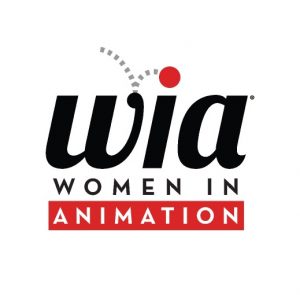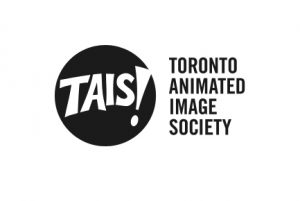Last updated on July 14, 2009
 Second and final part of Mark Capello’s interview with M-A Kuttner former honcho at Collideascope Digital Pictures.
Second and final part of Mark Capello’s interview with M-A Kuttner former honcho at Collideascope Digital Pictures.
(Mark Cappello in italics)
How do you think the closing of Collideascope and even more recently Fatkat has affected the ‘decision makers’ in Toronto with regards to their perception of Atlantic Canada’s ability to produce full series? Do you think the loss of these two large, stable studios has affected their view of the region?
I don’t know all of the production executives, I was not the person that dealt with them so I don’t know enough about what’s going on in their heads. Over the last 4 or 5 years there has been quite a big turnover of production execs at the main broadcasters who buy animation, and that’s certainly affected how those broadcasters relate to the regions because by and large the new executives that have been brought on board don’t have the same track history with the established producers out here. Of course if you’re in Toronto as your head office you are going to know those executives in Toronto so much better. When they’re dealing with the regions they don’t know them as well, so there is less of a comfort level, I don’t think there is a conspiracy against producers in any of these regions, it’s just a question of having to go back and re-introduce yourself to all of these players at the broadcast level. It takes quite a large investment of time, effort, and money for people out here to go and really keep themselves in the face of the people in the main centers on a constant basis to represent yourself as someone who is a player in the industry. I think that kind of big shake up in the industry itself has certainly shaken up our ability here to be able to relate really quickly to the people at the broadcasters, and we just have to rebuild it.
constant basis to represent yourself as someone who is a player in the industry. I think that kind of big shake up in the industry itself has certainly shaken up our ability here to be able to relate really quickly to the people at the broadcasters, and we just have to rebuild it.
What do you think the short-term future holds for the Atlantic region specifically when it comes to animation production, in terms of the overseas drain, the lack of work in general, the gap in notoriety with the broadcasters? There are a lot of great skilled workers and studios in this region, studios like Copernicus and Helix Digital. What do you think the next few years holds for them?
At Collideascope we were very cognizant of the fact that doing anything on our own was more and more of a fool’s game. Increasingly, nationally if we were going to be doing original productions on our own they were going to be inter-provincial co-productions where we were partnering with a larger firm, which ended up being Decode who ended up being our distributor on Olliver’s adventures as well as our co-production partner on Delilah and Julius, we had a great familiarity and working relation with them. Co-production is just a fact of life, co-production anywhere even national co-production is becoming more and more unfeasible, it’s really international co-productions now with more and more pieces to them that can take advantage of the best of what each region or country can bring to the production. The thing we have out here is a very good tax credit and a very skilled and talented labor pool. Where we can keep our region relevant is by continuing to produce very high quality stuff, we need to keep our quality at least as good as anywhere else in the major centers of the country, the general impression of people who have not worked with people in this region is that sense that it’s ‘amateur hour’ here in the Maritimes, and the moment we start to pump out stuff that confirms that notion we will lose. We really have to keep a pure focus on quality, and those producers who are here need to continually make a business case for why this region works. If we can do both of those things positively then we can still stay relevant.
You’ve always been a big supporter of the artists, you’ve been involved with NSCAD and the arts community for a long time in Halifax, what are your feelings or thoughts with regards to an animation professional association, or even a union?
Well, as the head of a studio one of your things is you certainly don’t ever want to see a bunch of your people outside the studio with picket signs, but again the other side of that is that if you don’t want that you should be treating your people well. Sadly I always wanted to pay my crew more than what we had budget for, but again animation is a low margin industry anyway so we always tried to find out what the industry standard rates are and adhere to them as much as possible. It was gratifying because we tried to do as well as we possibly could by the people we had working here we also got an enormous amount of loyalty and just hard frigging work from some amazingly talented people. That in itself, not the fear of picket signs, just knowing that you’re creating an environment where people wanted to put their best work in, it’s huge. As far as an association goes, I think that there are a lot of good points to it, I’m a member of the Graphic Designers Society of Canada, and at one point we were trying to figure out ways for our artists at Collideascope to get on a health plan if they wanted, it’s something Collideascope can’t do with the nature of the seasonal work, even though Collideascope had some great years, it was never reliable enough to put them on a company plan, but I approached the Graphic Designers Society and they said they would be willing to have on animators as associate members, and they have a really good health plan. Everything else aside, things like a health plan make an association a great idea, also there is the ability to network more efficiently with your peers, informally tell people about good and bad studio experiences, and generally share industry information, and I think those are all good things. The union side of things… of course there are good and bad elements to it, but part of what works against animators in Canada in a union or association is just the fact that the country is just so frigging big and it’s really difficult to organize people across something so vast.
The web makes a big difference for that, and it could be what works for us. One thing I’ve noticed is if you go down the chain of production on an animated series everybody BUT the artists are unionized or in a professional association. The producers are part of the CFTPA, the directors are part of the Director’s Guild, the editors are guilded, the writers are guilded, the voice actors are part of ACTRA, in some cases the staff that comes in and mops the floors at night are part of a union, everyone EXCEPT the artists who are sitting there pouring their hearts and souls onto the paper. I’ve always found that interesting, especially in light of the work going overseas, all of those ‘protected’ jobs I mentioned are the jobs that never go, I don’t think that labor organizing is an inoculation against job loss, but it is interesting to note who has protected themselves and who hasn’t.
You have a point, definitely, I mean, I would take issue with at least from my immediate experience as work goes overseas the producer’s can be affected, I mean I had to shut the company down. As the work goes overseas everybody is affected, as a group the animators were definitely disproportionately affected. Editors in general are not as specialized as animators, a good editor can work in animation or live action, if you’re an animator you’re animating as either a 2D animator or a 3D animator so your skill-set is much more specialized and therefore much more susceptible to swings in the industry. Yeah, if you’re an animation producer and things start to go south in animation you have the possibility of going off and producing another type of show like live action or something.
But, even if you are a producer and you are affected by a downturn you still have the CFTPA to fall back on. Mentoring, meeting and networking opportunities from your professional association can give you a leg up when times are tough.
Yeah.
When you’re young entering the industry and you join a professional association you tend to grow up fast. You tend to learn from your peers and you can lose the naive luster that ‘hey I’m drawing for a living’ and you can distance yourself from the image of the job that you were sold in college. People end up getting into so much debt and so much trouble chasing the dream without any understanding of the industry.
Oh definitely, I think a professional association is always a great idea.
It has nothing to do with prices or cash, we’re basically at the maximum of where we can be under the circumstances, its not like if we organize we will all make twice as much money, there isn’t twice as much money to be made.
No, exactly, but I think the thing with any association is understanding that it is only going to be able to run as efficiently as the time and money that people are willing to put into it, you have to be able to count on dues from members, you have to be able to have people volunteer to work on committees and sub-committees. A lot can be done over the web and e-mail, but you also need to have some central person or group of people at a head office somewhere who can be paid full time to be able to help organize all the activities that everyone is working on. Obviously, for the producers association the producers have to pay so many thousands of dollars a year, it depends on the size of your company, but that goes into the association and it helps pay the bills. Unfortunately that’s part of it, and animation is not a super high paying job so it makes it difficult for animators to contribute a lot of money to an animation association. For the producer’s association especially, if you don’t put your money into that you find that your opportunities to produce new shows become less and less as things strengthen more and more in the direction of the broadcasters so if you want to be paid you will throw multiple thousands of dollars into your dues in the association. You’re giving your business a better shot at surviving. I wouldn’t say that there is an adversarial relationship between producers and broadcasters, but there is a lot of adversarial stuff that goes on between the independent producers and the broadcasters in this country because the broadcasters control all this stuff and they obviously want more say, and the independent producers are trying to keep their voice heard. If you want to have a sense that there is a broad base of Canadian voices out there you need to have independent producers, if everything is controlled centrally by the broadcasters the way it is in the States all you’re going to get is the broadcaster’s point of view of what’s going to sell. It’s a very Canadian thing, what the producers are doing is asking for a compromise where we’re really looking at the production community like something as an industry, but how much of it needs to be industrialized and how much are you looking at it as a vibrant Canadian cultural product because part of it comes to the whole question of ‘what makes us not American?’ a venue where we can produce our stories. With an association for animators it would certainly give you all a central point around which to exchange knowledge and stories, and get new things done, the key of course is getting a critical and stable mass of people behind it, which is difficult with any association.
Wow, thanks M-A this was a very in depth and interesting interview.
My pleasure, happy to do it.
I just have a few more questions, but I promise you they are much lighter in tone. First of all, what was your proudest moment at Collideascope?
Hmmm. It was probably the final party that we had and everyone came up and expressed their happiness to have had worked at the studio, it’s not to say that everyone who ever worked there was happy, but the turn out was great, and it was a good month or two after the place was shut down, and people made the effort to come out and a lot of people who had worked here over the years came from all over to come to the final blowout. It wasn’t a wake so much as it was just a nice way of saying goodbye.
It’s funny you mention it because you sort of scooped my next question, which was what was your reaction to the overwhelmingly positive reaction from people about Collideascope and their experience there when you announced the company’s closure?
It was great, you know, working here was a tough, tough thing to do on a lot of the projects that we did, people worked f*cking hard, and it was nice to know that by and large even after going through some experiences where they were pretty thoroughly beaten that there was still a lot of goodwill towards Collideascope itself and toward the experiences that they had here. There must have been over 500 individual people employed at different times in our history, and I didn’t know or recall everyone’s names right off the top but I certainly enjoyed seeing how well the dynamic persisted in the studio and how people were there for each other, it wasn’t an everyone for themselves sort of thing, everyone knew that we were working on something together and that if we worked on it together it would be better and we could be more proud of it.
Do you have any future plans to get back into regular animation production?
Haha, I still got all the equipment! I will never say never. If something comes up where I can work on something I’m really interested in and work with people I want to work with, then yeah I’ll do that, but I’m not planning on opening up a studio and keeping the shingle out 24/7 as ‘the’ studio. It’s more of if there is a good opportunity and it’s something where I can put together a really great group of people again and work with people I want to work with, then yeah, I’d do it.
Big thanks to both Mark and M-A for taking the time to have this conversation and making it available to us.
mv






Many important topics have been discussed in both parts of this interview. Unfortunately, there are animators out there that don’t care about the finer details behind the scenes, but accessible discussions such as this are so important for those that do take an interest. Thanks to you, Mark and M-A, for doing this, and to Mike for putting it out there.
I’m happy to have been able to work at Collideascope for a couple of years. I will always remember my experience there along with all the good times!